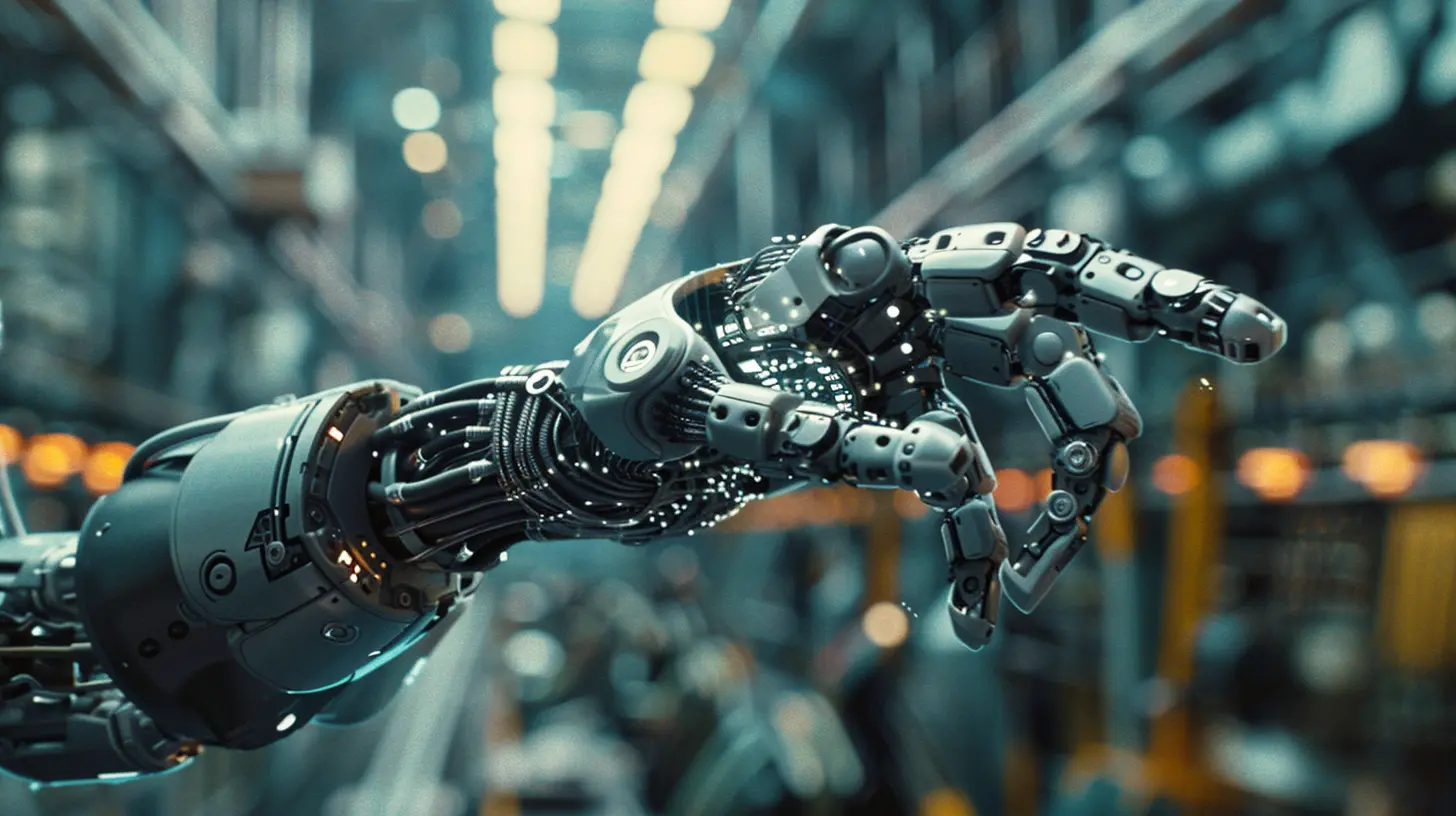Robotic Process Automation: A Catalyst for Faster Decision-Making
8 November 2025
Technology is evolving at lightning speed, and guess what? Business decisions can't afford to lag behind. Enter Robotic Process Automation (RPA)—the unsung hero that automates tedious tasks and skyrockets decision-making efficiency.
If you’re still making decisions manually, it's like choosing dial-up internet in an era of 5G. Get ready to dive deep into how RPA is revolutionizing decision-making processes, cutting downtime, and giving businesses the competitive edge they crave.

What is Robotic Process Automation (RPA)?
Let’s keep it simple—RPA is software technology that automates repetitive tasks typically done by humans. Think of it as your digital employee that never takes coffee breaks and doesn’t mess up simple data entries.With RPA, businesses can speed up workflows, reduce human errors, and make better, data-driven decisions without sweating the small stuff. From processing invoices to handling customer support tickets, RPA takes care of the grunt work so teams can focus on strategic decisions that actually matter.

The Need for Speed: Why Faster Decision-Making Matters
In today’s business world, slow decision-making is a death sentence. While your competitor is using automation to respond in real-time, you're stuck in the past, waiting for manual approvals. Not a good look, right?Faster decision-making offers:
- Competitive Advantage – The quicker you act, the faster you seize opportunities.
- Higher Efficiency – Less time spent on mundane tasks means more time for innovation.
- Reduced Errors – Automation eliminates human-induced mistakes, ensuring better accuracy.
Now, let’s talk about how RPA makes all of this possible.

How RPA Supercharges Decision-Making
1. Real-Time Data Processing
Making decisions based on outdated information is like reading last week’s weather forecast and expecting it to be accurate. RPA provides real-time data, ensuring businesses can act on the most up-to-date insights available.For example, in banking, RPA can track suspicious transactions instantly, preventing fraud before it even happens. No more waiting for manual reviews—automation does the heavy lifting.
2. Eliminating Human Bottlenecks
Humans get tired. They take lunch breaks. They go on vacation. RPA? It works 24/7 without demanding a paycheck.By automating rule-based tasks, businesses clear bottlenecks that slow down decision-making. Whether it’s processing insurance claims or handling logistics, decisions that once took days now happen in seconds.
3. Data Accuracy = Better Decisions
Let’s be real—humans make mistakes, especially when dealing with large amounts of data. A wrong decimal placement in financial reports can lead to catastrophic decisions. RPA ensures data accuracy, removing the risk of human error and enabling smarter, more reliable decision-making.4. Seamless Integration with AI and Analytics
RPA isn’t just about mindless automation—it plays well with AI and machine learning. When paired with predictive analytics, RPA helps businesses forecast trends and make proactive decisions rather than reactive ones.For instance, an eCommerce platform using RPA and AI can automate inventory management, predict stock shortages, and make restocking decisions without waiting for humans to notice the issue.

Industries Harnessing RPA for Lightning-Fast Decisions
Still not convinced? Let’s break it down by industry and see how businesses are crushing decision-making lag with RPA.1. Finance & Banking
- Fraud Detection – Identifies suspicious transactions instantly.- Loan Processing – Approves or rejects applications in minutes, not weeks.
- Regulatory Compliance – Ensures reports meet legal standards without errors.
2. Healthcare
- Patient Data Processing – Reduces administrative delays.- Insurance Claim Verification – Cuts the waiting time for approvals.
- Appointment Scheduling – Automates patient bookings without human intervention.
3. Retail & E-Commerce
- Dynamic Pricing Adjustments – Updates product prices in real time based on demand.- Supply Chain Optimization – Automates inventory tracking and reordering.
- Customer Support – Chatbots resolve issues instantly using RPA-powered workflows.
4. Manufacturing & Logistics
- Order Tracking & Fulfillment – Reduces delays and lost shipments.- Predictive Maintenance – Prevents machine breakdowns by analyzing real-time data.
- Quality Control – Uses automated checks to maintain product standards.
5. Human Resources
- Resume Screening – Filters job applications within seconds.- Onboarding Automation – Speeds up new hire processing.
- Payroll Processing – Ensures error-free salary disbursements.
The Roadblocks: Challenges of Implementing RPA
Alright, let’s not pretend RPA is all rainbows and unicorns. It has its fair share of challenges, but nothing that can’t be tackled with the right strategy.1. High Initial Costs
Setting up RPA requires an upfront investment. But guess what? The ROI far outweighs the costs in the long run.2. Resistance to Change
People fear automation will steal their jobs. The truth? RPA enhances human work, freeing employees from robotic tasks so they can focus on higher-value activities.3. Complexity in Implementation
Not all processes are suitable for RPA. Businesses need to identify the right workflows, ensuring automation truly adds value.
The Future of RPA: What’s Next?
RPA is not just a trend—it’s here to stay. As AI and machine learning evolve, RPA will become smarter, more adaptive, and even more indispensable.Imagine a world where businesses predict customer needs before they ask, supply chains run on auto-pilot, and decisions are made with zero delays. Sounds like science fiction? Well, it’s becoming reality faster than you think.
Final Thoughts
Robotic Process Automation is not just about saving time—it’s a game-changer for decision-making. Businesses that embrace RPA will outperform those stuck in manual processes. It’s simple: automate or get left behind.So, if you're still debating whether to implement RPA, here’s your wake-up call. The future doesn’t wait, and neither should you.
all images in this post were generated using AI tools
Category:
Robotic Process AutomationAuthor:

John Peterson
Discussion
rate this article
1 comments
Rivenheart Alexander
Fascinating insights! I'm intrigued by how RPA can reshape decision-making processes. Can't wait to see the real-world applications and outcomes in various industries!
November 10, 2025 at 4:30 AM

John Peterson
Thank you! I’m glad you found it interesting. The potential of RPA to enhance decision-making is indeed exciting, and I look forward to seeing its impact across industries as well!


